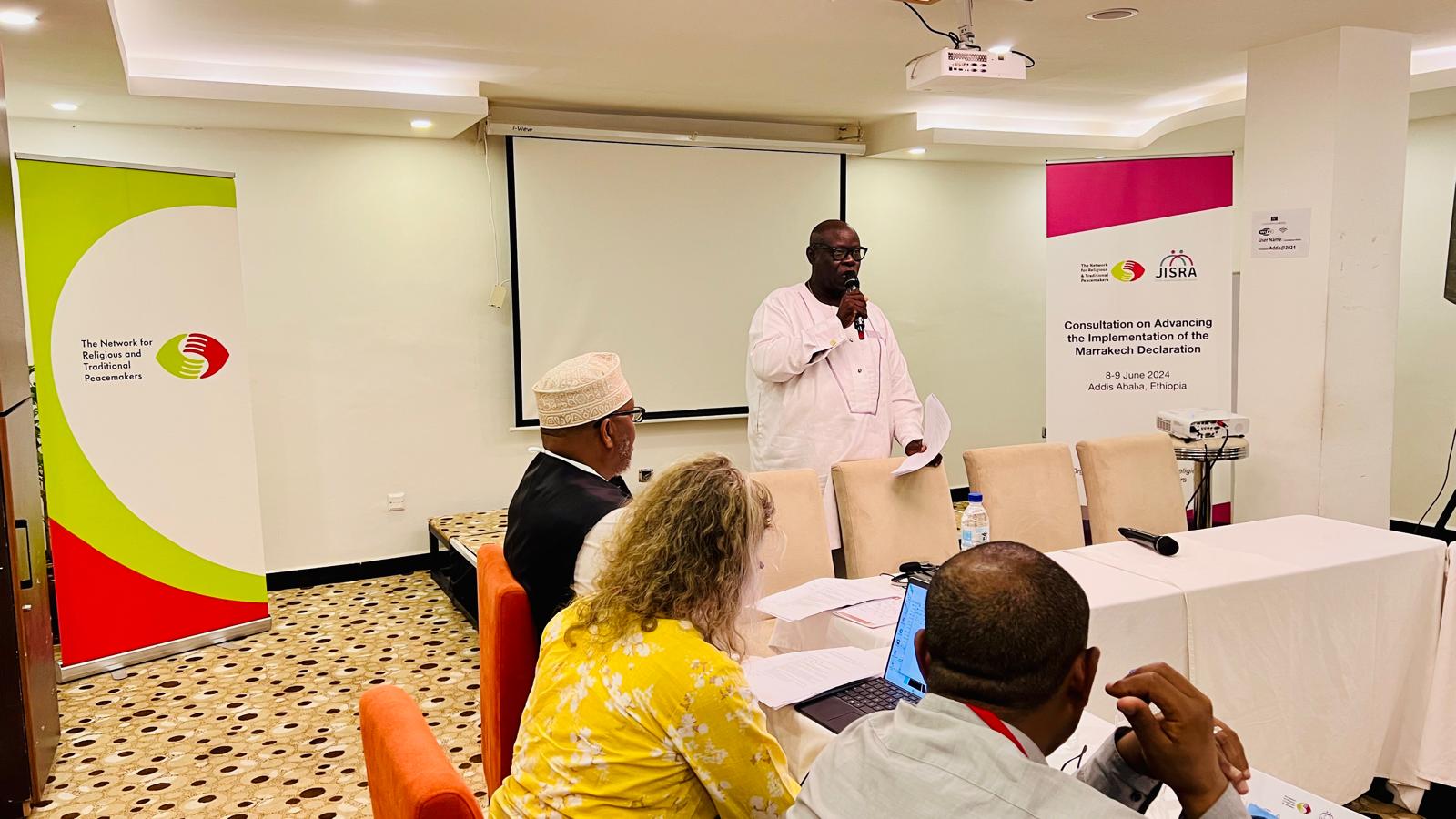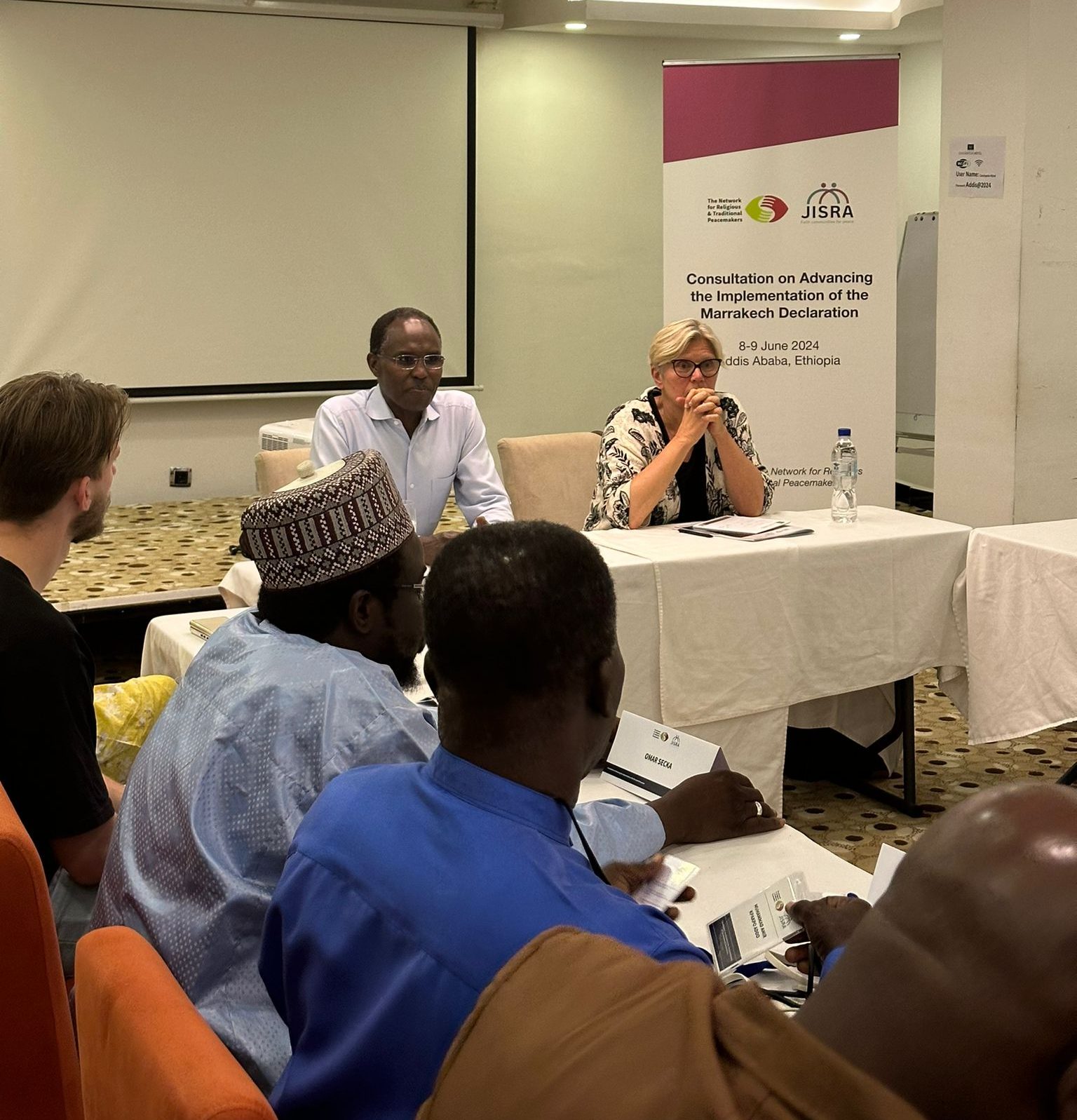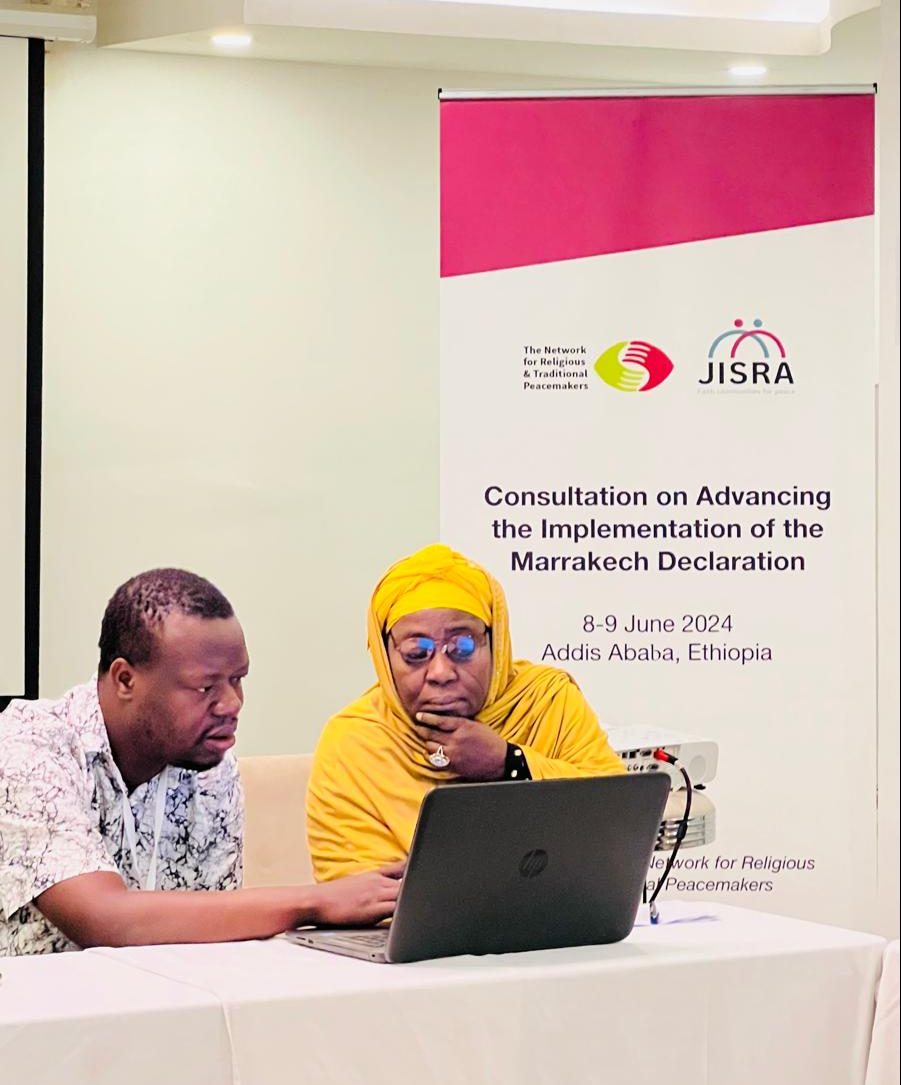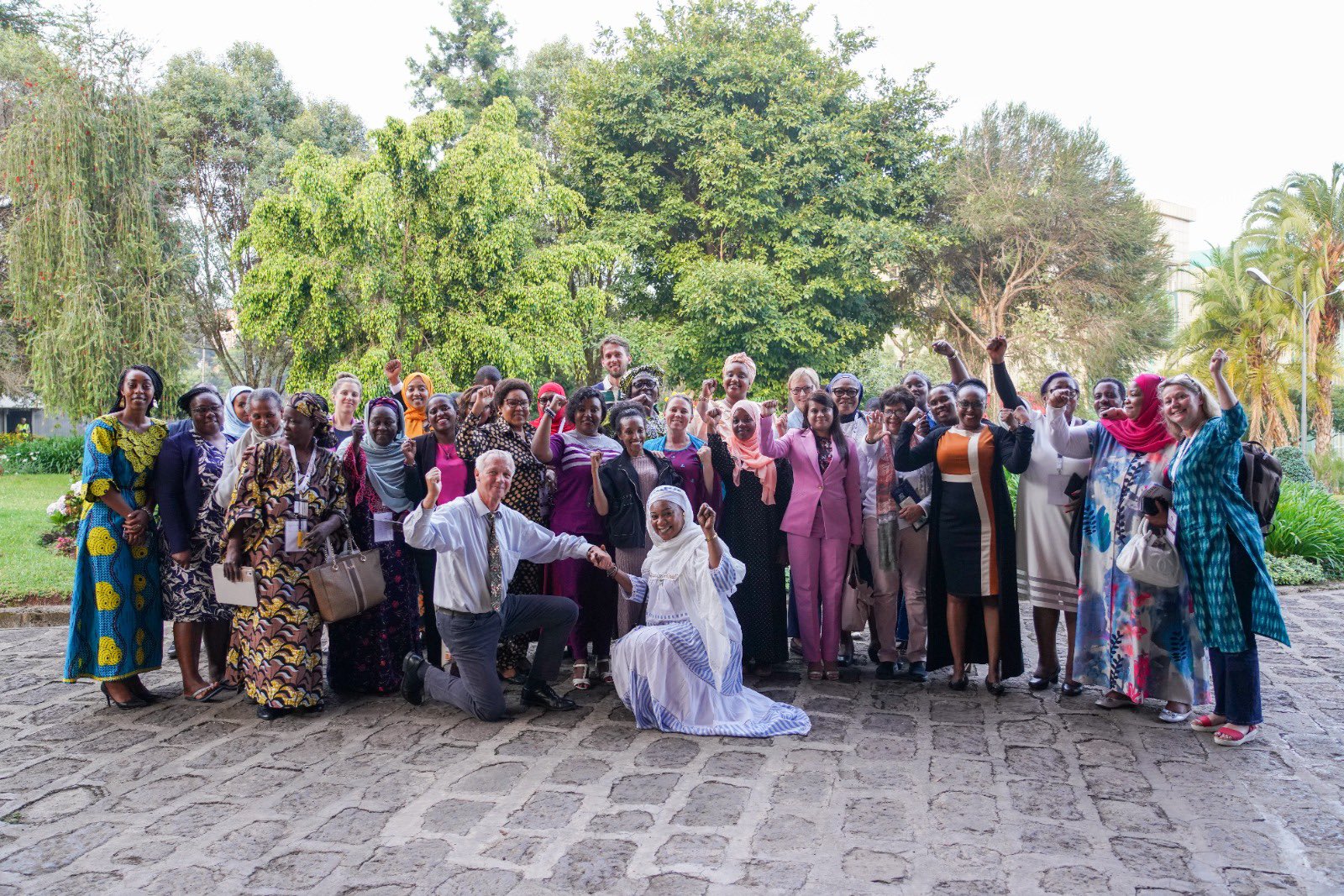JISRA Partners Convene in Addis Ababa
Training | June 2024
Religious Actors Convene in Addis Ababa to Advance the Implementation of the Marrakech Declaration
As part of the Joint Initiative for Strategic Religious Action Programme (JISRA), the Network for Religious and Traditional Peacemakers led a two-day consultation (8-9 June 2024) in Addis Ababa, Ethiopia, with over 20 religious leaders and actors from across Sub-Saharan Africa. These leaders represented diverse communities and worked to advance the implementation of the Marrakech Declaration (2016). This Declaration was issued by over three hundred Muslim scholars, politicians, activists, and interfaith observers as a concerted response to the persecution and violence against ethnic and religious minorities in Muslim-majority states.
During the opening session, Peacemakers Network Executive Director Dr. Mohamed Elsanousi highlighted that the current state of Freedom of Religion or Belief (FoRB) around the globe is complex and interlinked, with individuals and communities continuing to face severe challenges to their right to practice, change, or express their religious beliefs freely. Despite these challenges, he underscored positive developments, noting that some member states, with the support of civil society, are making concerted efforts to protect and promote FoRB through legal reforms, interfaith dialogue initiatives, and international advocacy.

Participants engaging in Interreligious dialogue at the two-day consultation in Addis Ababa to advance the implementation of the Marrakech Declaration.
There was a broad consensus that to effectively implement the Marrakech Declaration in Muslim-majority states, it is essential to adopt a comprehensive approach that encompasses a “whole of society approach.” Speakers consistently highlighted the need to set clear objectives and ensure meaningful engagement with women and youth to create a robust framework that not only protects the rights of religious minorities but also promotes peaceful coexistence and mutual understanding among diverse religious minority communities. This approach ensures that the principles of the Marrakech Declaration are embedded in the social, legal, and educational fabric of society, leading to sustainable and inclusive development.

Informal discussion between Mensen met een Missie Consortia Coordinator and participants at the two-day consultation in Addis Ababa to advance the implementation of the Marrakech Declaration.

From left to right: Sougourounoma Henri Kabore and Halimat Jibril Day two of the consultation beginning with reports from breakout sessions on the ‘Role of Women and Youth’ at the two-day consultation in Addis Ababa to advance the implementation of the Marrakech Declaration.
The meeting concluded with the adaptation of an outcome document that contains five recommendations to advance the implementation of the Marrakech Declaration:
1. Promote peaceful coexistence and collective collaboration among different religious and ethnic groups through strengthening or building inter-intra dialogue and collective action.
2. Cultivate a culture of peace, mutual understanding, and respect by integrating the principles of the Marrakech Declaration into educational curricular and training programs.
3. Develop strategies for religious leaders and actors to promote positive narratives about religious diversity and mutual respect.
4. Develop and maintain engagement between religious leaders and actors and political leadership, both at local and national levels.
5. Maintain sustained efforts to follow up on the implementation of the Marrakech Declaration.
Going forward, the Peacemakers Network will organize two additional consultations with religious and traditional actors: 1) East Asia (Indonesia in November); and 2) the Middle East and North Africa (Morocco TBC) to further develop the outcome and explore regional diversities and solutions.
Women of Faith Conference: Advocating for Freedom of Religion and Belief in Africa
From the 10-15 of June, the Peacemakers Network partnered with JISRA partners Mensen met een Missie, the Interreligious Council of Kenya, the African Council of Religious Leaders, and the Ethiopian Interfaith Forum for Development, Dialogue and Action for the Women of Faith Conference focused on advancing for freedom of religion and belief in Africa. The Conference consisted of over 24 women of faith from Africa, representing diverse religious traditions.
The Conference consisted of advocacy training, a visit to the African Union and the Dutch Embassy and a visit to a local Ethiopian women of faith initiative. The Peacemakers Network was proud to have implemented a one-day training on women faith-based mediation, engaging the Political Affairs, Peace and Security division of the African Union within the training.
The Women of Faith ended the meeting with a press conference on ending female genital mutilation – read the statement here.

Participants and trainers share a group photo at the Women of Faith Conference: Advocating for Freedom of Religion and Belief in Africa.
About the JISRA Project
The Joint Initiative for Strategic Religious Action (JISRA) is a partnership of 50 civil society organizations based in Ethiopia, Indonesia, Iraq, Kenya, Mali, Nigeria, and Uganda (with supporting lobby and advocacy in Europe and the USA). This international, inter religious partnership is implementing a five-year program (2021-2025) in partnership with the Dutch Ministry of Foreign Affairs, to further peaceful and just societies where all enjoy Freedom of Religion and Belief (FoRB).
The basis of the program is JISRA’s conviction that Freedom of Religion and Belief and interfaith dialogue are essential and integral to the realization of peaceful and just societies. In addition, diverse religious actors, including women and youth, can and need to play an important role in this process as change makers. JISRA believes their voices must be heard.
The program is coordinated by four international consortium partners: Mensen met een Missie (lead organization), Tearfund UK and Tearfund the Netherlands, Faith to Action Network, and Search for Common Ground. At the international level, the programme partners with the Dutch Ministry of Foreign Affairs and is supported by technical partner, the Peacemakers Network. At the country level, 46 organizations with very diverse backgrounds implement the program in the seven focus countries.
Follow the Network on social
